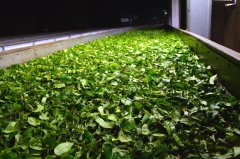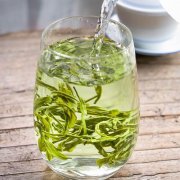What kind of tea do you drink to calm the mind and help you sleep best? what kind of tea can improve your sleep? which kind of tea is most likely to cause insomnia?
Tea and Sleep-Tea is good for sleep or bad for sleep? The tea in Camellia sinensis contains caffeine, a stimulant known to interfere with sleep. However, the amount of caffeine in tea is significantly lower than that in coffee, and tea contains chemicals other than caffeine, which can affect the body's sleep cycle. In particular, compared with drinking coffee, drinking tea has been proved to be good for sleep. Caffeine interferes with sleep: eating caffeinated foods or drinks later in the day can disrupt sleep and lead to insomnia. Lack of sleep can seriously affect health and performance, and have a negative impact on attention, immune system function and creativity. The effect of caffeine varies from person to person, but it is best to avoid caffeine within 4-6 hours before going to bed, especially for sensitive people and people with insomnia. The benefits of tea and coffee on sleep: a study compared the use of coffee and tea and found that the two drinks had roughly the same effect on alertness. However, the study also found that tea drinkers had the same benefits as coffee drinkers in terms of alertness and concentration, although tea contained much less caffeine. In this study, drinking tea was significantly less disruptive to sleep than drinking coffee, which the researchers speculated may be due to a significant reduction in the amount of caffeine in tea.

The benefits of theanine on sleep: tea also contains l-theanine, an amino acid found to play an important role in relaxing and promoting healthy sleep. All teas contain l-theanine, but some types of teas, such as Japanese green tea gyokuro, have particularly high concentrations of this chemical. Tea and sleep apnea: sleep apnea is a common and potentially destructive sleep disorder, including sleep apnea, which leads to sleep interruption. The disease is often characterized by snoring. Although it is not known whether tea can prevent or treat the disease, there is evidence that antioxidants in green tea can at least prevent damage caused by sleep apnea. Herbal sleep tea: herbal tea comes from all plants except tea trees and has a variety of effects on sleep. Some herbal teas can enhance sleep, while others can disrupt sleep. Most herbal teas do not contain caffeine (except Madai tea and some other teas), so they are a better choice to drink before going to bed and later. Valerian and kava have been shown to help treat sleep disorders, and some preliminary studies have shown that chamomile, hops, lavender, passionflower and lemon balsam may also be useful. However, kava and valerian are powerful drugs and can only be used in consultation with medical professionals, not as drinks at will. However, chamomile and lemon flavor are generally considered safe beverages to use.
Important Notice :
前街咖啡 FrontStreet Coffee has moved to new addredd:
FrontStreet Coffee Address: 315,Donghua East Road,GuangZhou
Tel:020 38364473
- Prev

Flow chart of how to make Darjeeling black tea from India, the three famous black tea brands in the world.
Darjeeling, translated from Tibetan, means the land of thunder and lightning, a priceless gem of a town in the lower Himalayas. Darjeeling's history seems to begin with a station built on the mountain by the British East India Company (BritishEastIndiaCompany) in 1835. In this
- Next

How to soak tea is the correct and delicious tea how to soak the upper, middle and lower throwing method
How to brew high quality loose leaf tea according to the order of water and tea, Chinese bulk tea generally has three brewing methods. The first one is to put the tea first and then pour the water, which is called the throwing method. Second, pour into the water 1amp 4 container volume, then put in the tea for a while, and then fill the water, which is called the middle throw method. Finally, pour the water and then the tea.
Related
- What is the difference between Indonesian Sumatra Mantinin coffee and gold Mantinin? How to distinguish between real and fake golden Mantelin coffee?
- What does bypass mean in coffee? Why can hand-brewed coffee and water make it better?
- Unexpected! Ruixing Telunsu lattes use a smoothie machine to foam milk?!
- % Arabia's first store in Henan opens into the village?! Netizen: Thought it was P's
- Does an authentic standard mocha coffee recipe use chocolate sauce or powder? Mocha Latte/Dirty Coffee/Salty Mocha Coffee Recipe Share!
- What is the difference between Vietnam egg coffee and Norway egg coffee? Hand-brewed single product coffee filter paper filter cloth filter flat solution!
- What is the difference between sun-cured and honey-treated coffee? What are the differences in the flavor characteristics of sun-honey coffee?
- How to make Italian latte! How much milk does a standard latte use/what should the ratio of coffee to milk be?
- How to make butter American/butter latte/butter Dirty coffee? Is hand-brewed coffee good with butter?
- Is Dirty the cold version of Australian White? What is the difference between dirty coffee/decent coffee and Australian white espresso?

